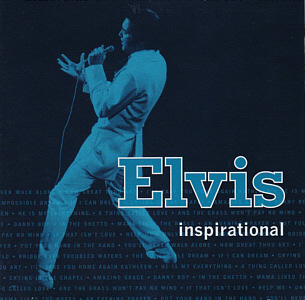
| Release: 2006 | Sony/BMG 82876 77434 2 | Argentina | 16 € | |
| Release: 2006 | Sony/BMG 82876 77434 2 | Australia | 14 € | |
| Release: 2006 | Sony/BMG 82876 77434 2 | EU | 12 € | |
| Release: 2006 | Sony/BMG CDRCA7151 | South Africa | 20 € | |
| Release: 2006 | Sony/BMG 82876 77434 2 | Thailand | 17 € | |
| Release: 2006 | Sony/BMG 82876 77434 2 | USA | 12 € | |
| Release: 2007 | Sony/BMG 82876 77434 2 | USA | 12 € | |
| Release: 2011 | Sony Music 88697 87784 2 | 886978778321 | USA | |
| Release: 2011 | Sony Music 88697 87784 2 | 886978778420 | USA | 10 € |
| Published in the Elvis theme CD series. See all releases here. |
|
Elvis Presley's '68 Comeback Special was packed
with remarkable moments, but perhaps none could equal his rendition
of "If I Can Dream." This inspirational number, written especially
for the climax of the now-Iegendary broadcast, was literally a
showstopper. Elvis' straight-from-the-soul performance made you want
to stand up and cheer right in your living room. While the staging
may have been stylized, the passion Elvis summoned in the television
studio that day could never be faked. This was a glimpse of the
Elvis who'd been reared on gospel music at humble, racially mixed
Pentecostal Churches in Mississippi and Tennessee, who once dreamed
of joining a gospel quartet when he grew up. Of course, things
turned out very differently for him, and the young rock and roller
would be denounced from many a pulpit, but Elvis never forsook his
spiritual side. It's in ample evidence on this collection, which
combines traditional Christian hymns (like a reverential
interpretation of one of Elvis' personal favorites, "How Great Thou
Art") with contemporary pop anthems (like his dramatic reworking of
Simon & Garfunkel's "Bridge Over Troubled Water") and stirring
social commentary (the powerful, chart-topping parable about poverty
and racism, "In The Ghetto"). |